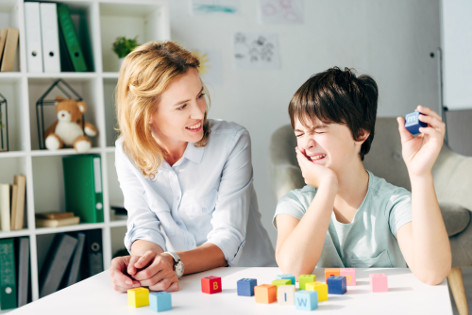
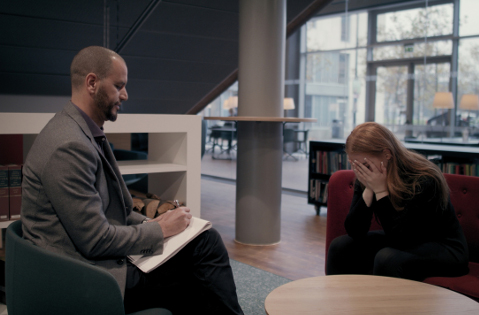
MEMBER OF
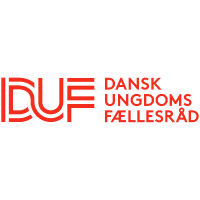


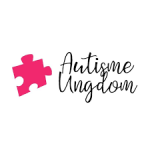


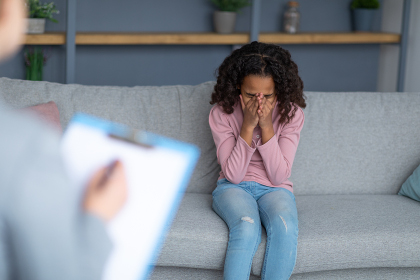


The Child, Adolescent & Family Therapy Clinic in Copenhagen
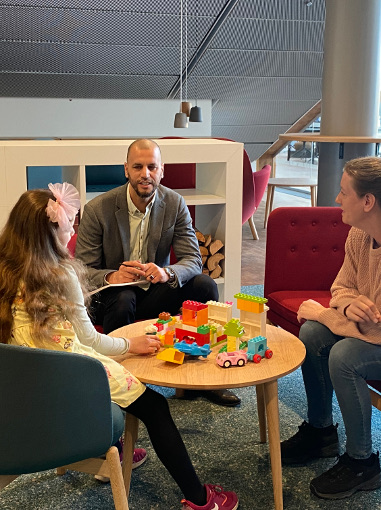
At Cabinetpsy-Danemark, we recognize that everyone is not the same, and therapy, therefore, must be adapted to respond to an individual’s need.
We are a clinic, in the heart of Copenhagen, consisting of a team of highly skilled trained psychologists and psychotherapists. Our therapists are recognized for their expertise in the psychological well being and mental health of children, young people and their families.
We are offering therapy in Arabic, Danish, English and French.
We offer one-on-one therapy for children, adolescents, couples and families. You will be assigned to a therapist based on your wishes and needs. This way the therapist can best help you through your specific issues.

Today's client may look much different than he or she did in past decades. The society becoming more diverse results in an increasing number of clients with diverse backgrounds, who seek help and counseling in mental health. This changing landscape of professional clinical practice means counselors may benefit from having a multicultural perspective, an understanding in racial identity, and proper training to work with clients (and colleagues) who lead lives different than their own.

As an Arabic-speaking therapist, I was fortunated to be able to work for many years with refugees and immigrants in their mother tongue; and to benefit from the feedback from clients as well as from refering municipalities. The mother language is an integral part of our identity formation, representing culture, religion and background. Language is also strongly emotionally charged and thus central for both children and adults to express their feelings and inner world.

Trauma intersects in many different ways with culture, history, race, gender, location, and language. Cultural awareness, responsiveness, and understanding are essential to increasing access and improving the standard of care for traumatized children, families, and communities. Often, there are different expressions of grief and trauma associated with different cultures. In families where one or more family members are traumatized, the mental surplus is limited. Traumatizing events are often not discussed openly. This "secret" creates anxiety and fantasies, and as a result, children often feel responsible for the family's difficulties.

Central in my education as a psychotherapist (approved by the Danish Psychotherapist Association), was creating together with the client a greater awareness for yourself and your identity. This is an integrative and dynamic form of therapy, supporting you in becoming more aware of the different aspects of yourself. Consequently, you identify negative thoughts and action patterns. This enables you to change them and take control of your life. Many of the young people with other ethnic backgrounds do not manage to go through a constructive and healthy identity development, and an outcome of this may be that they end up in crime. This identity-oriented therapy is supporting this group of young people through the formation of their identity.
“We can recommend Intercultural Psychotherapy, especially if you have a child, who is sensitive and has learning difficulties. But he can also help children express themselves, develop important skills, and process trauma in a healthy, productive environment. My son was more resilient when he came home from the sessions and we benefited greatly from the treatments.” Mother of Stefan
Social Worker in a municipality
“We can highly recommend therapy with Intercultural Psychotherapy. Our client has developed positively during the time he has been with IP. Our 6-year-old boy, among other things, got better at putting his feelings into words rather than just getting angry. In the past he used to reject the mother and today he seeks out his mother more often and expresses it when he needs her help and care.”
Refugee in Denmark
"I definitely recommend Intercultural Psychotherapy, he is the most skilled therapist I have ever met. He has really made me see a lot around myself and about my psychological challenges that I couldn't see before. I become a lot more aware on why I act the way I do, and that is the first step to changing to a state of peace and quieteness.”








Stefan (14 years old)
Danish father and Serbian mother